1. Năm 1884: Vua quan ta không chịu mở cửa giao
thương, lại thích sang Tàu cầu viện. Quân Tàu cũng sang giúp ta
đánh Pháp dù rằng nước Tàu cũng đang rối ren. Sau Pháp và Tàu ký hòa ước
Fournier, nước Tàu rút quân về để Pháp tiếp tục đánh chiếm nước ta.
Year 1884: Our Kings and imperial officials didn’t communicate with
the world and only asked Chinese for reinforcement. The Chinese still
helped us to fight against the French even though China was in
disturbance itself. Later on, China and France signed the Fournier
peace treaty; the Chineses withdrew their army back, letting the French
continued to conquer our country.
An 1884: Nos rois et fonctionnaires de l'Empire ne communiquèrent pas
avec le monde et demandèrent seulement un renfort aux chinois. Les
chinois continuèrent à nous aider à combattre les français, même si la
Chine était elle-même en période de troubles. Plus tard, la Chine et la
France signèrent le traité de paix Fournier; les chinois retirèrent leur
armée laissant les français continuer à conquérir notre pays.
Ông
Tôn Thất Thuyết (Tài liệu: Một Thời Hoàng Tộc của Bảo Thái)
92. Vua Hàm Nghi và Hịch Cần Vương: Triều đình
Huế ngày một rối ren, quyền hành ở trong tay 2 ông Nguyễn Văn
Tường và Tôn Thất Thuyết. Năm 1885, Pháp tấn công triều đình Huế. Vua
Hàm Nghi phải chạy ra Quảng Bình, ban hịch Cần Vương kêu gọi dân giúp
vua chống Pháp. Triều đình không có vua phải lập vua Đồng Khánh lên
ngôi.
King Ham Nghi and Can Vuong Edict: The Hue regime was more and more
disordered; the power was in the hands of Mr. Nguyen Van Tuong and Mr.
Ton That Thuyet. In 1885, the French attacked Hue imperial court, King
Ham Nghi had to flee to Quang Binh where he proclaimed the Can Vuong
Edict to call people for helping the King to fight the French. The
imperial court had no king so they had to advance King Dong Khanh to the
throne.
Le roi Hàm Nghi et l’édit de Cân Vuong: Le régime de Huê fut de plus
en plus désorganisé, le pouvoir était entre les mains de M. Nguyên Van
Tuong et M. Tôn Thât Thuyêt. En 1885, les français attaquèrent la cour
impériale de Huê, le roi Hàm Nghi dut fuir à Quang Bình où il proclama
l’édit de Cân Vuong pour appeler le peuple à l’aider à combattre les
français. La cour impériale qui n’avait plus de roi promut au rang de
roi Dông Khanh en le portant sur le trône.
Vua
Thành Thái
93. Năm 1887: Pháp lập quan Tổng Đốc toàn quyền ở
Sài Gòn để trông coi việc cai trị ở Nam kỳ và Cao Miên, cùng với
việc bảo hộ ở Bắc kỳ. Mỗi nơi có 1 viên Thống sứ đứng đầu. Người Pháp
thường nhúng tay vào công việc triều đình. Họ hay ủng hộ việc lập các
ông vua trẻ lên ngôi để dễ dàng thuyết phục và khuynh loát.
Year 1887: The French set up the General-Governor in Saigon to rule
the South of Vietnam and Cambodia, and to dominate the north of Vietnam.
Each region had a separate resident Superior. The French tried to
intercept our imperial affairs and usually support very young kings so
they could easily manipulate.
An 1887: Les français établirent le gouvernement général à Saigon
pour gouverner le sud du Viêt-Nam et le Cambodge et en même temps pour
dominer le nord du Viêt-Nam. Chaque région avait un Supérieur résident
différent. Les français tentaient d'interférer dans nos affaires
impériales et soutenaient le plus souvent des rois très jeunes afin
qu'ils puissent facilement les manipuler.
Vua
Đồng Khánh
94. Trong khi Pháp lo xếp đặt ở Bắc kỳ thì ở
Trung kỳ đảng Cần Vương đánh phá mạnh. Vua Đồng Khánh ra mặt Bắc
để chiêu dụ vua Hàm Nghi và các quan đại thần về cho yên việc đánh dẹp,
nhưng các cựu thần vẫn nổi lên làm loạn. Vua Đồng Khánh phải trở về
kinh.
While the French was busy with the Northern affairs, the Can Vuong
party in the central attacked them. King Dong Khanh had to travel to
North to persuade King Ham Nghi and high-ranking mandarins to go back
but they still rebelled. King Dong Khanh had to return to the imperial
court.
Tandis que les français étaient occupés avec les affaires du Nord, le
parti Cân Vuong se souleva. Le roi Dông Khanh dut se rendre au Nord
pour convaincre le roi Hàm Nghi et des mandarins de haut rang de ne plus
se révolter mais ils continuèrent à le faire. Le roi Dông Khanh dut
donc retourner à la cour impériale.
95. Vua Hàm Nghi bị bắt: Bị phản bội, vua
Hàm Nghi bị bắt đày đi Algerie, nhiều quan quân bị Pháp giết. Tùy tướng
Tôn Thất Đạm viết thư xin lỗi vua đã không làm tròn nhiệm vụ rồi tự vẫn.
King Ham Nghi was arrested: King Ham Nghi was betrayed, arrested and
deported to Algerie. Many other officials and soldiers were killed by
the French. Mr. Ton That Dam, one of the King’s officers, wrote a
letter to apologize to King Ham Nghi then committed suicide.
Le roi Hàm Nghi fut arrêté: le roi Hàm Nghi fut trahi, arrêté et
déporté en Algérie. De nombreux autres fonctionnaires et soldats furent
tués par les français. M. Tôn Thât Dam, un des officiers du roi, écrivit
une lettre pour présenter des excuses au roi Hàm Nghi et se suicida
ensuite.
Vua
Duy Tân
96. Cách cai trị của người Pháp: Nam kỳ gọi
là thuộc địa, coi như lãnh thổ nước Pháp. Bắc kỳ là xứ bảo hộ, quan
Việt phải phục tùng quan Pháp. Trung kỳ do vua nước Nam giữ. người từ
miền nầy qua miền khác phải xin phép chính phủ bảo hộ. Đây là chính sách
chia để trị nhằm chia rẽ người Việt để người Pháp dễ bề cai trị.
người Pháp thu nhiều thứ thuế để nuôi dưỡng quan quân bảo hộ.
French ruling: The South was a French colony, which was the same as
French land. The North was a dominated land by French so Vietnamese
imperial officials had to obey French mandarins. The central belonged
to Vietnamese kings. Vietnamese who traveled from one region to another
had to get permission from the French dominating government. This is a
divided and conquered policy, which aimed to drive a wedge between
Vietnamese so it would be easier for French officials to rule our
people. The French set up many kinds of taxes to get money to pay for
dominating officials.
La méthode de domination française : Le Sud était une colonie
française, considérée comme terre française. Le Nord était une terre
dominée par les français de sorte que les fonctionnaires impériaux
viêtnamiens devaient obéir mandarins français. Le centre du pays
appartenait aux rois viêtnamiens. Les Viêtnamiens qui voyageaient d'une
région à l'autre devaient obtenir l’autorisation du gouvernement
français. C’était une politique de division et de conquête ayant pour
objectif d’enfoncer un coin entre viêtnamiens de sorte à permettre aux
fonctionnaires français de diriger plus facilement notre peuple. Les
français créèrent de nombreuses taxes pour obtenir des fonds pour payer
les fonctionnaires dirigeants français.
97. Ông Phan Đình Phùng: Ông Phan Đình Phùng thi
đỗ làm quan, có cả tài văn võ. Ông đứng đầu đảng Văn Thân, xây
chiến lũy Ba Đình, tập luyện binh sĩ chống Pháp. Ông có tài tổ chức quân
đội, huấn luyện binh sĩ theo lối Âu châu. người Pháp đánh dẹp nhiều
năm không xong. Sau ông già bị bịnh mà mất.
Mr. Phan Dinh Phung: Mr. Phan Dinh Phung was an imperial official who
was both a scholar and warrior. He found Van Than party, built Ba Dinh
fortification, and trained soldiers to fight the French. He was a
talented general who trained the soldiers in European way. The French
fought to dissolve Mr. Phan’s army in many years but failed. Mr. Phan
Dinh Phung got old and died of sickness.
M. Phan Dình Phùng: M. Phan Dình Phùng fut un fonctionnaire impérial
qui fut à la fois un érudit et un guerrier. Il fonda le parti Van Thân,
construisit la fortification de Ba Dình et entraîna des soldats à
combattre les français. C’était un général talentueux qui forma les
soldats à l’européenne. Les français se battirent pendant des années
sans succès pour dissoudre l'armée de M. Phan. M. Phan Dình Phùng
vieillit et mourut de maladie.
98. Ông Nguyễn Trung Trực, anh hùng trên sông
Nhật Tảo : Ông Nguyễn Trung Trực sinh quán tại Bình Định. Ông là
một sĩ phu bất khuất, lãnh đạo nghĩa quân khởi nghĩa 8 năm ở vùng Nam Kỳ
Lục Tỉnh. Chiến công chói lọi của ông là đốt cháy tàu Espérance trên
sông Nhật Tảo, Tân An, và đánh chiếm thành Sơn Đá tại Kiên Giang. Sau
kháng chiến thất bại, ông bị bắt chém tại chợ Rạch Giá năm 1868. Dân
chúng chôn cất và lập đền thờ ông tại tỉnh Rạch Giá.
Phần
mộ anh hùng Nguyễn Trung Trực tại Rạch Giá
Mr. Nguyen Trung Truc, a hero on Nhat Tao river: Mr. Nguyen Trung
Truc was born in Binh Dinh. He was an indomitable scholar who led
righteous armies to rebel 8 years in the six provinces of the South.
His glorious victories were burning the warship Esperance on Nhat Tao
river, Tan An, and occupying the Son Da rampart in Kien Giang. Later,
the rebellion was defeated; Mr. Nguyen Trung Truc was arrested and
beheaded at Rach Gia market in 1868.
Bên
trong đền thờ anh hùng Nguyễn Trung Trực tại Rạch Giá
M. Nguyên Trung Truc, un héros de la rivière Nhât Tao: M. Nguyên
Trung Truc naquit à Bình Dinh. Ce fut un érudit indomptable qui dirigea
les armées rebelles pendant 8 ans dans les six provinces du Sud. Ses
victoires glorieuses : la destruction par le feu du navire de guerre
l'Espérance sur la rivière Nhât Tao, Tân An et l’occupation du rempart
Son Da à Kiên Giang. Plus tard, la rébellion fut défaite, M. Nguyên
Trung Truc fut arrêté et décapité au marché Rach Gia en 1868.
99. Ông Trương Công Định, anh hùng Gò Công:
Ông Trương Công Định từng ở trong đội quân của Kinh Lược Sứ Nguyễn Tri
Phương và đánh Pháp lập được nhiều chiến công. Ông cùng nghĩa binh xây
dựng nhiều đồn lũy kiên cố ở Gò Công. Được dân chúng ủng hộ mạnh mẽ,
nghĩa binh ông gây nhiều thiệt hại cho giặc. Về sau ông bị tên Huỳnh
Công Tấn làm phản dẫn quân Pháp về đánh. Ông hy sinh, đền nợ nước, để
lại thương tiếc cho mọi người .
Mr. Truong Cong Dinh, a hero of Go Cong: Mr. Truong used to be in the
troop of the Viceroy Nguyen Tri Phuong, fighting the French many times.
He was with his righteous armies to build ramparts at Go Cong. With
strong support from people, he and his armies caused the enemy suffer
heavy damages. Later, betrayer Huynh Cong Tan led French army to attack
him. He died for the country causing great sorrow in people hearts.
M. Truong Công Dinh, un héros de Gò Công: M. Truong Công Dinh faisait
partie de la troupe du vice-roi Nguyên Tri Phuong, lutant de nombreuses
fois contre les français. Il érigea avec ses armées de solides forts à
Gò Công. Avec appui ferme du peuple, lui et ses armées causèrent à
l'ennemi de grands dommages. Plus tard, le traître Huynh Công Tân
conduisit l'armée française pour l'attaquer. Il mourut pour le pays,
causant une grande tristesse dans le cœur du peuple.
100. Ông Thiên Hộ Dương, anh hùng Đồng Tháp :
Ông tên thật là Võ Duy Dương, làm chức Lãnh binh năm 1865. Ông khởi
nghĩa ở miệt Đồng Tháp, Cái Bè, Mỹ Quý, Sa Đéc, gây nhiều thiệt hại cho
thực dân Pháp. Sau ông bị bịnh chết, phong trào "Dân Chúng Tự Vệ" của
ông từ đó cũng bị lu mờ.
Mr. Thien Ho Duong, hero of Dong Thap: Mr Thien real name was Vo Duy
Duong. He was an army leader in 1865. His uprising, in Dong Thap, Cai
Be, My Quy and Sa Dec, caused big loss for the French colonists. His
death of illness made the “Defend Movement” in the area die out.
M Thiên Hô Duong, le héros de Dông Thap: Son vrai nom était Vo Duy
Duong. Il était chef d'armée en 1865. Son soulèvement à Dông Thap, Cai
Bè, My Quy et Sa Déc, occasionna une perte importante pour les colons
français. Sa mort de maladie causa l’extinction du mouvement de défense
dans la région.
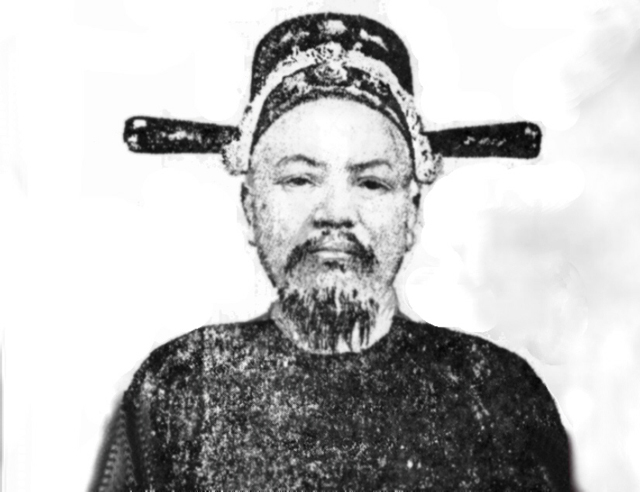
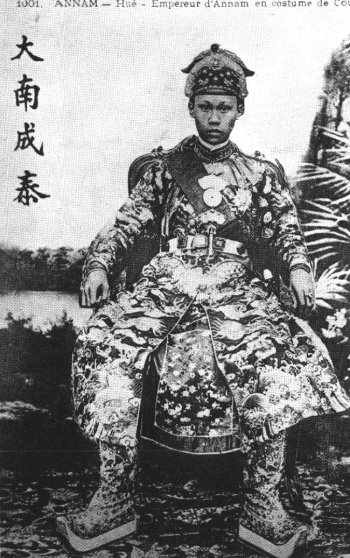
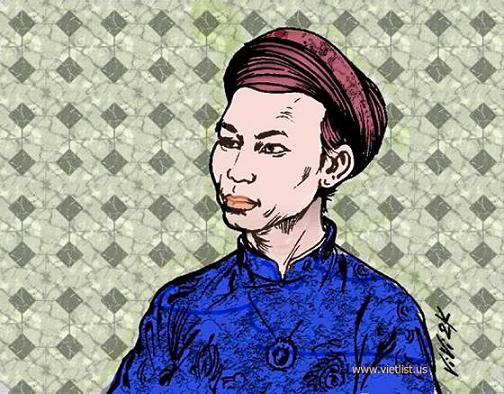
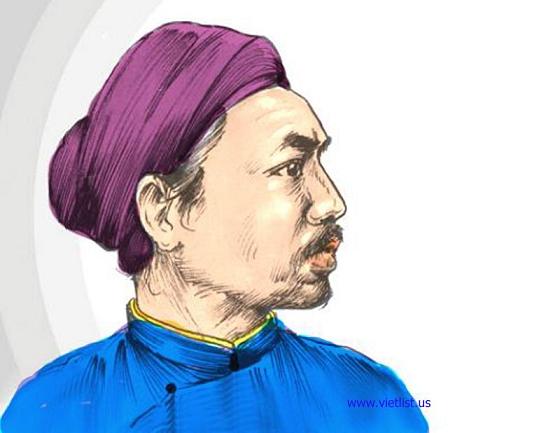
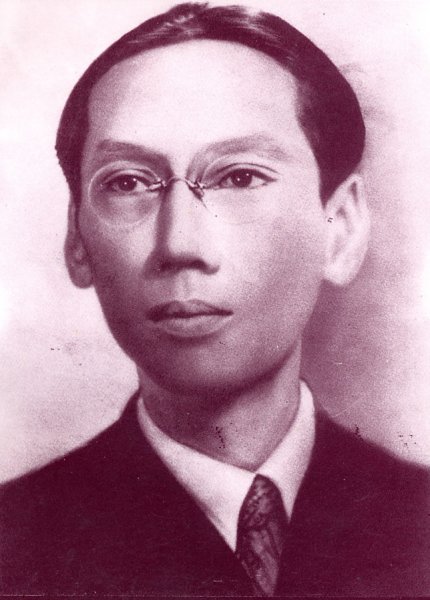
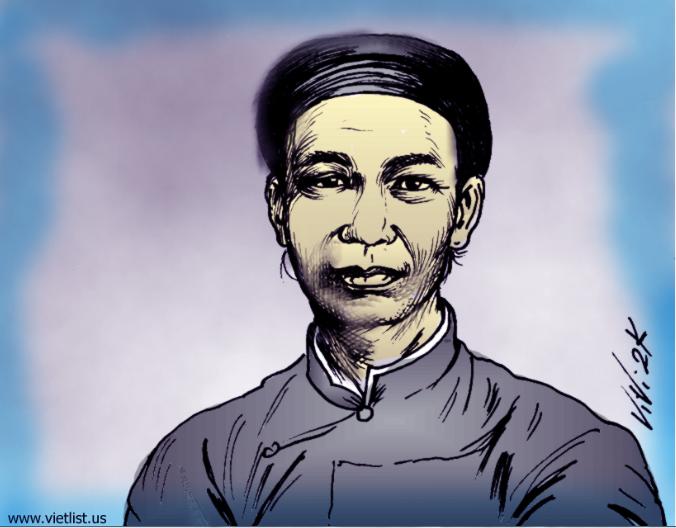
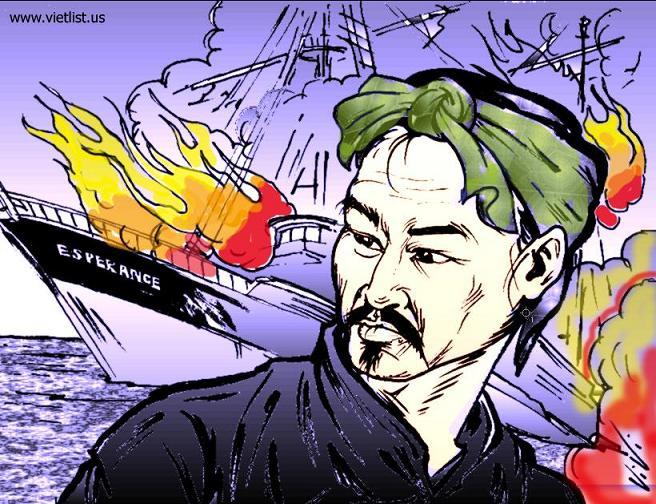
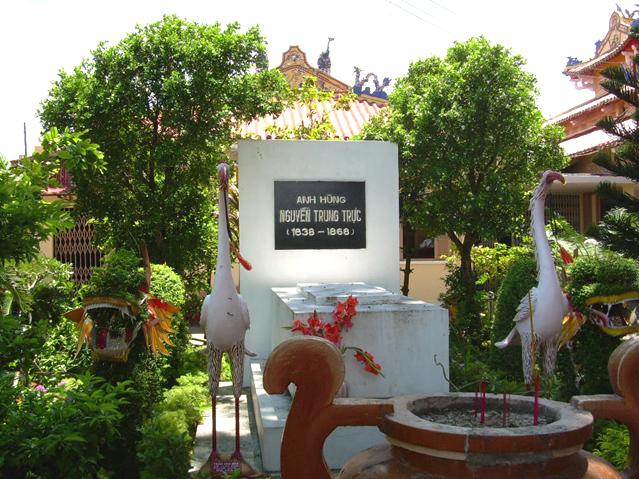
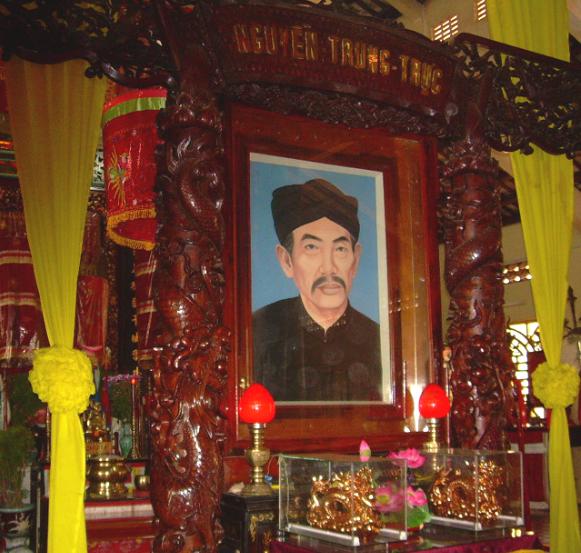
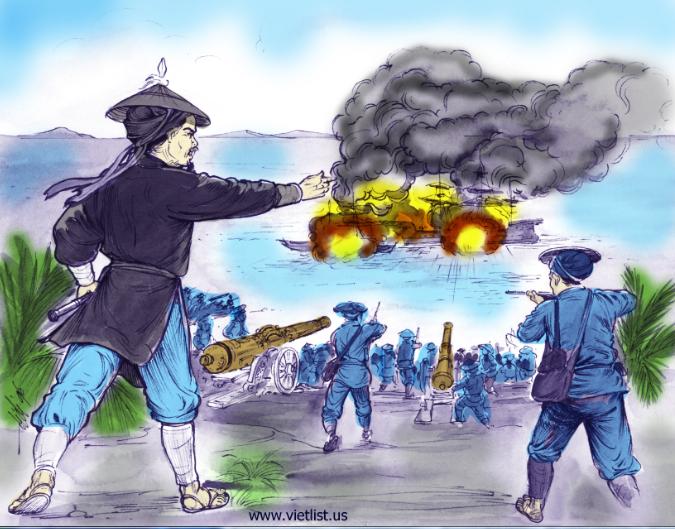
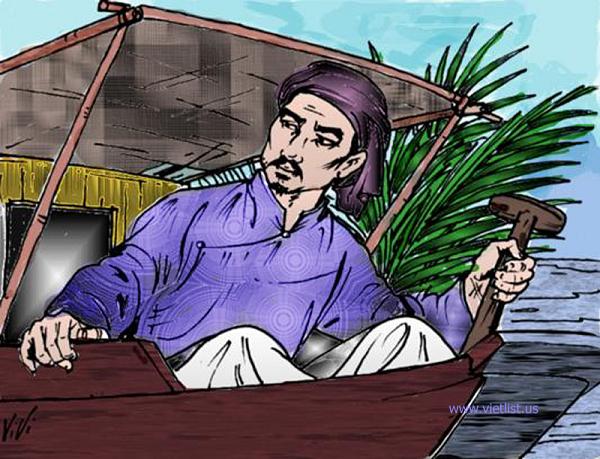
Không có nhận xét nào:
Đăng nhận xét